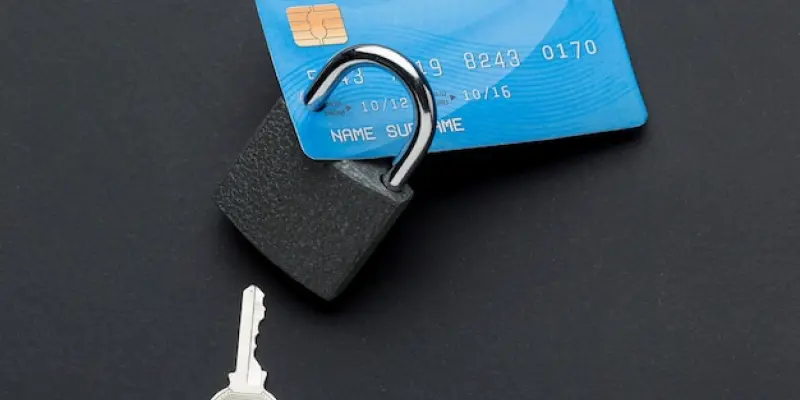Curve has made a revolutionary move by becoming the first digital wallet to extend Section 75 protection to all purchases, including those made using debit cards. Traditionally, this UK consumer protection law applies exclusively to credit card transactions within the range of £100 to £30,000, providing security against issues such as faulty goods, unfulfilled services, and retailer insolvency. However, Curve’s bold initiative ensures consumers benefit from this crucial protection regardless of whether they use a credit or debit card within the Curve Wallet. By bridging this significant gap, Curve aims to enhance consumer security and establish a new benchmark in the digital wallet industry.
A considerable concern for UK consumers is the inconvenience and financial loss they face due to problems with purchased items. Statistics reveal that nearly a quarter of consumers have encountered issues, leading to over £2 billion spent and six million hours wasted on resolving these problems. Given that debit cards represent nearly two-thirds of all UK payments and significantly surpass credit card transactions, the absence of Section 75 protection for debit cards has left a large number of consumers vulnerable. Prior to Curve’s pioneering effort, debit card users lacked this essential protection, exposing them to potential risks. Curve has addressed this imbalance by ensuring robust, universal protection across all card types used within its wallet, thus safeguarding a vast number of consumers.
Curve’s Position in the Digital Wallet Industry
Curve’s strategic move to introduce universal Section 75 protection places it ahead of leading digital wallets like Apple Pay and Google Pay. This initiative signifies Curve’s commitment to setting industry standards and prioritizing consumer rights. Shachar Bialick, Curve’s Founder and CEO, reaffirmed this by highlighting their mission to make financial transactions both safer and more convenient. He stated that integrating Section 75 protection into Curve Wallet fundamentally enhances its security and versatility. This customer-centric approach not only aligns with their mission but also reiterates their leadership in consumer rights within the digital wallet industry.
Protection under Section 75 applies automatically when customers link any card to their Curve Wallet, reinforcing the company’s regulatory standing as both an ‘e-money payment institution’ and a ‘consumer credit provider.’ Furthermore, recent regulatory advancements in the EU and US have enabled enhanced functionalities for Curve users, particularly those using iPhones. With the integration of Near-Field Communication (NFC) technology, Curve users can enjoy added benefits such as credit access and purchase protection, further illustrating Curve’s commitment to innovation and customer satisfaction.
The Impact of Enhanced Consumer Protection
Curve’s introduction of universal Section 75 protection has a profound impact on user trust and transaction safety within the digital wallet realm. By spanning protection across all payment methods, Curve ensures comprehensive security, thus setting a definitive industry standard. This strategic enhancement signifies a pivotal shift in consumer financial protection and convenience, elevating Curve’s reputation as a customer-focused innovator. With such robust measures in place, users are more likely to trust and engage in digital transactions, further driving the adoption of digital wallets and promoting broader confidence in electronic payment solutions.
Additionally, Curve is not only focused on providing protection but also on continual innovation to offer market-leading benefits. Their recent efforts showcase this dedication, with offerings such as market-leading foreign exchange (FX) benefits and 1% cashback on international purchases. These initiatives emphasize Curve’s holistic approach to customer satisfaction and financial empowerment. By leveling the playing field for both credit and debit card users, Curve sets a new standard for financial security, paving the way for a future where digital payments are both safe and convenient for all consumers.
Setting a New Benchmark for Digital Wallets
Curve has transformed the digital wallet landscape by being the first to extend Section 75 protection to all purchases within its wallet, covering both credit and debit card transactions. Traditionally, this UK consumer protection law safeguards only credit card transactions ranging from £100 to £30,000, addressing issues like defective goods, unfulfilled services, and retailer insolvency. However, Curve’s innovative move provides this vital protection to debit card users as well, aiming to elevate consumer security and set a groundbreaking standard in the digital wallet industry.
UK consumers frequently face inconveniences and financial losses from problematic purchases. Statistics show that nearly 25% of consumers have experienced issues, costing over £2 billion and wasting six million hours on resolutions. Debit cards account for nearly two-thirds of all UK payments and far outnumber credit card transactions. Before Curve’s initiative, debit card users lacked Section 75 protection, leaving them exposed to risks. Curve rectified this disparity by offering comprehensive protection for all card types in its wallet, thereby safeguarding countless consumers and enhancing overall security.

